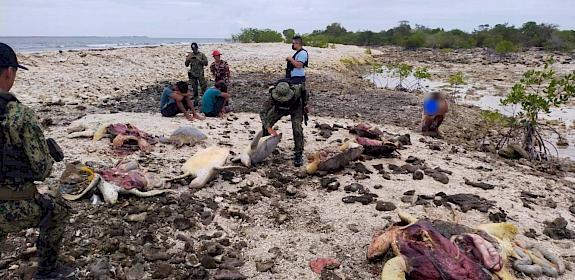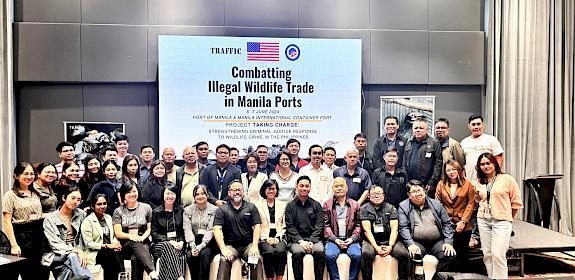Coding to end wildlife trafficking: India holds Zoohackathon
New Delhi, India, 9th October 2017—young developers, designers, project managers, and subject matter experts came together to create applications, systems, and tools to help detect and deter wildlife trafficking during India’s first “Zoohackathon”, held last week as the culmination of Wildlife Week 2017 celebrations.
Zoohackathon was conceptualized to challenge people to develop solutions that will help stop wildlife trafficking. In India, the Zoohackathon was organized by the U.S. Embassy, Ministry of Environment, Forest and Climate Change (MoEF&CC), TRAFFIC and WWF-India and held at the WWF-India Secretariat. TRAFFIC also participated, through a presentation to coders on demand reduction, at a parallel Zoohackathon event in London, UK, hosted by ZSL, while a Zoohackathon event also took place in San Diego, USA, last month.
The contesting teams were given various problem statements related to ending wildlife trafficking: 11 teams and nearly 70 participants worked tirelessly over two days during Zoohackathon India, 2017, with their efforts judged by a panel comprising Dr Saket Badola, Head of TRAFFIC’s India office; Ishita Anand, CEO–BitGiving; Sanjay Pathak, DIG–National Tiger Conservation Authority; and Isabella Detwiler, Deputy Minister Counselor for Economic, Environment, Science and Technology Affairs, U.S. Embassy.
The winner was team “Geeksforgreen” who developed a web application quantification tool that can be used to monitor social media for wildlife trafficking articles. The runners up team, “Zoodesign”, developed a tool to analyse infra-red camera trap motion images and send an alert whenever potential poachers are detected in protected forest areas.
Geeksforgreen will now compete for the global prize, along with the winning teams from the San Diego and London Zoohackathons.
“Smugglers and wildlife dealers are using the virtual space to buy and sell wildlife products and derivatives illegally and have been eluding enforcement agencies with their ever changing modus operandi. Zoohackathon brings together intelligent minds to develop new technology that TRAFFIC is confident can be adapted and further developed into effective solutions to help end wildlife trafficking in India and abroad.”
Dr Saket Badola, Head of TRAFFIC’s India officeMr Robert Garverick, Minister Counselor, Economic, Environment, Science and Technology, U.S. Embassy, said: “At the Zoohackathon we are embracing the idea of ‘civic hacking.’ We are doing this by soliciting your help in finding creative solutions to tackle the complex problem of how to combat wildlife trafficking.”





